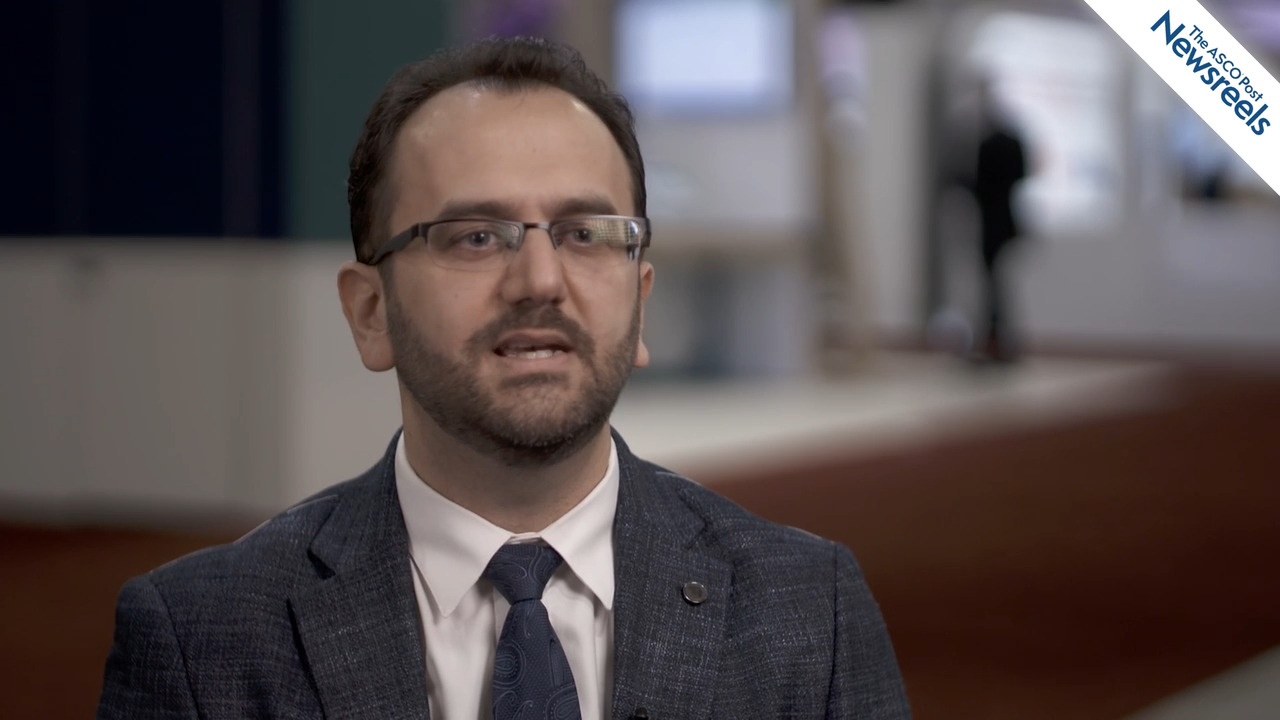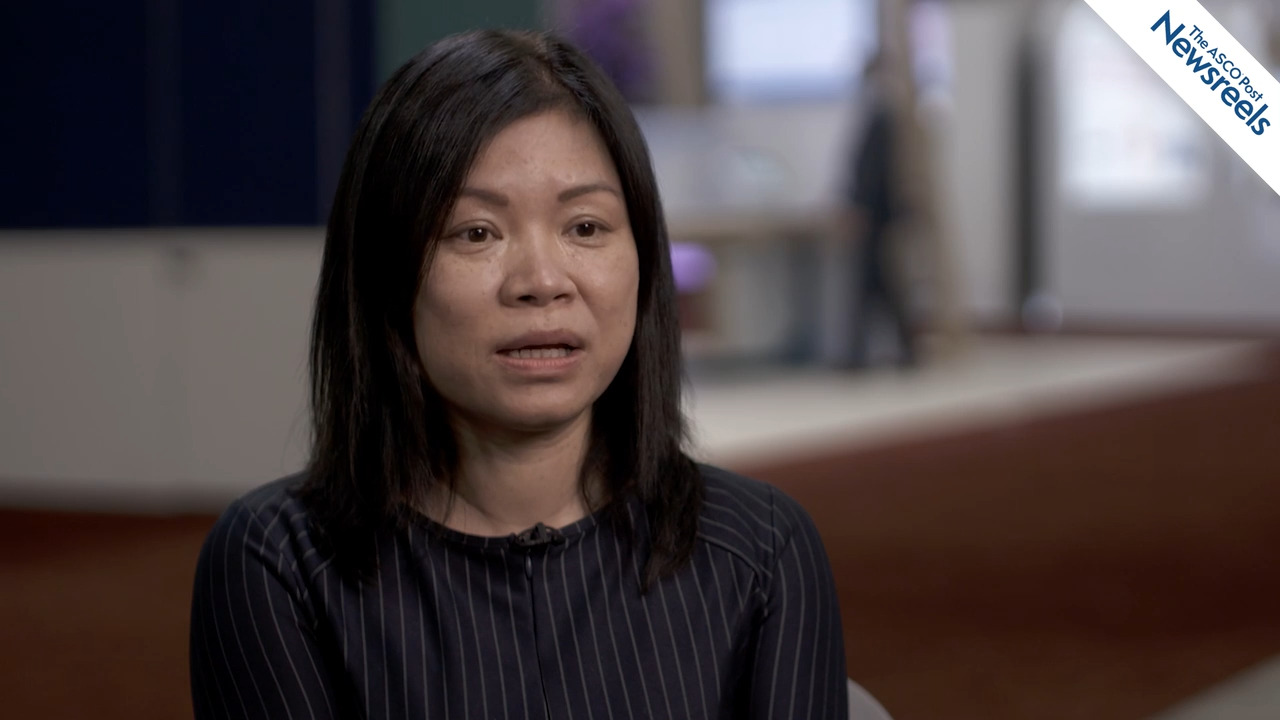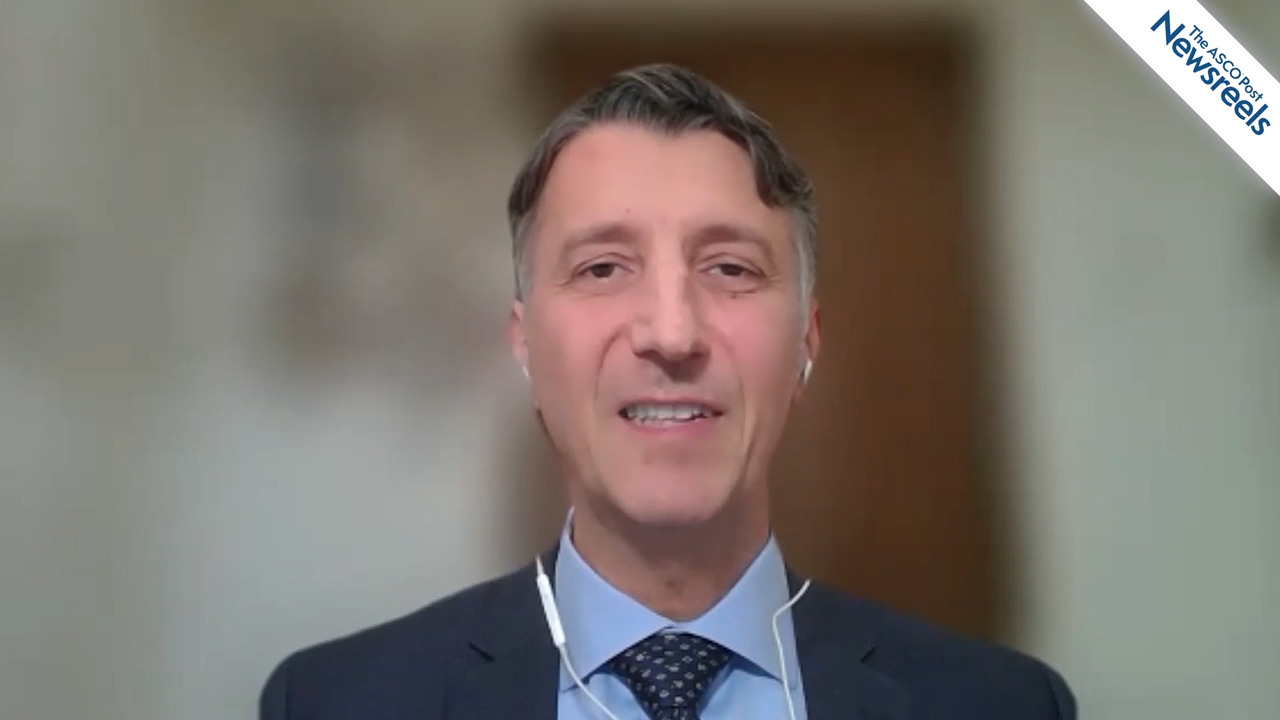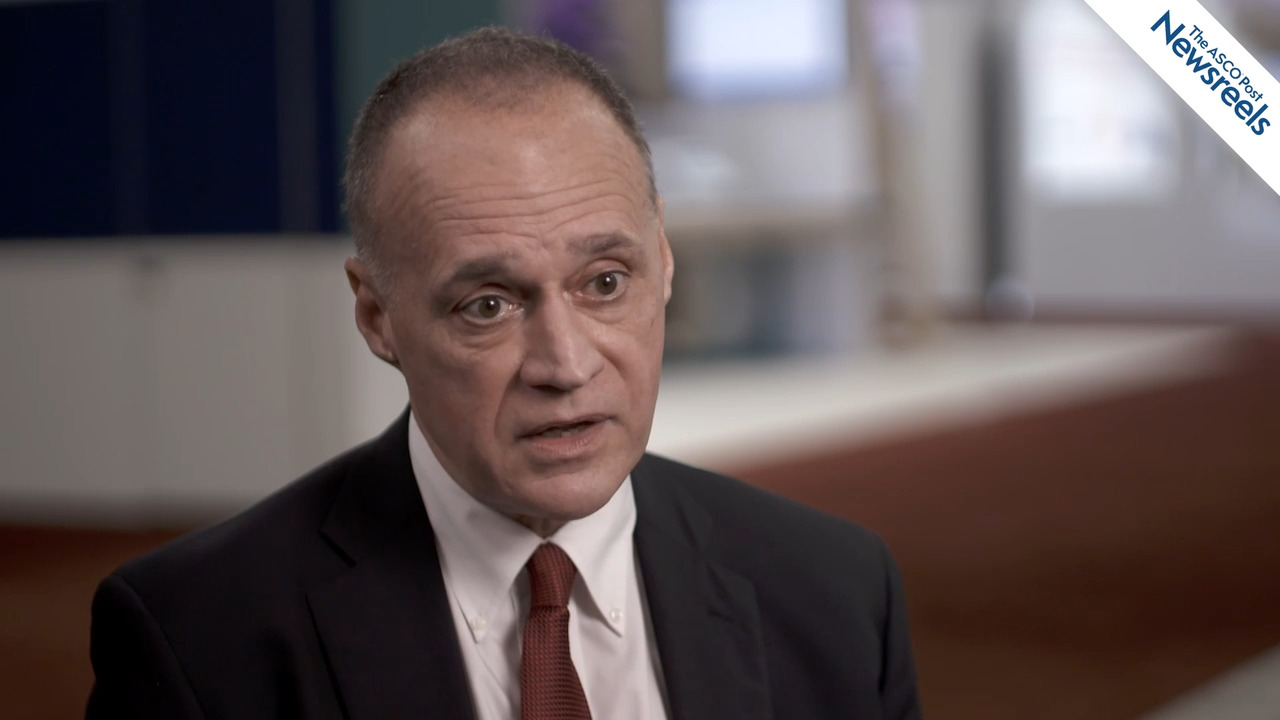Matthew S. Davids, MD, on Younger Patients With CLL: Ibrutinib Plus Fludarabine, Cyclophosphamide, and Rituximab as Initial Therapy
2021 ASH Annual Meeting & Exposition
Matthew S. Davids, MD, of Dana-Farber Cancer Institute, discusses phase II results from a multicenter study that showed the efficacy of ibrutinib plus fludarabine, cyclophosphamide, and rituximab in younger, fit patients with chronic lymphocytic leukemia who desire the possibility of a functional cure with time-limited therapy (Abstract 640).
The ASCO Post Staff
Musa Yilmaz, MD, of The University of Texas MD Anderson Cancer Center, discusses study results suggesting that quizartinib with decitabine and venetoclax is active in patients with FLT3-ITD–mutated acute myeloid leukemia and that RAS/MAPK mutations continue to drive primary and secondary resistance (Abstract 370).
The ASCO Post Staff
L. Elizabeth Budde, MD, PhD, of City of Hope, discusses phase I/II findings that showed mosunetuzumab monotherapy induces deep and durable remissions in patients with relapsed or refractory follicular lymphoma who have received two or more prior lines of treatment, including those with double-refractory disease. Because follicular lymphoma is associated with frequent relapses and decreasing progression-free intervals with successive lines of conventional therapy, these data are encouraging (Abstract 127).
The ASCO Post Staff
Paolo Ghia, MD, PhD, of the Università Vita-Salute San Raffaele and IRCCS Ospedale San Raffaele, discusses disease-free survival results from the measurable residual disease cohort of the phase II CAPTIVATE trial. This multicenter trial focuses on first-line ibrutinib plus venetoclax in patients with chronic lymphocytic leukemia (Abstract 68).
The ASCO Post Staff
Michael R. Bishop, MD, of the University of Chicago, discusses insights from findings of the phase III BELINDA study, which may inform the design of future CAR T-cell trials, as well as the use of second-line tisagenlecleucel therapy in patients with relapsed or refractory aggressive B-cell non-Hodgkin lymphoma (Abstract LBA-6).
The ASCO Post Staff
Romanos Sklavenitis-Pistofidis, MD, of Dana-Farber Cancer Institute, discusses study findings on a next generation of clinical assays to assess both tumor biology and immune state, as well as common clinical biomarkers in the marrow or blood. These biomarkers may accurately predict which patients with smoldering multiple myeloma might benefit from early treatment, monitor response to immunotherapy, and improve patient outcomes (Abstract 330).





